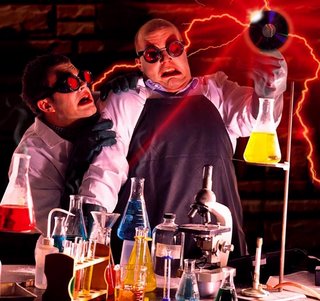
There seems to be an emerging consensus among scientists that the peer review process has broken down and in many crucial areas like medicine, energy science, and environmental science even the top journals cannot be trusted to present accurate and objective information.
John Wilkins over at Evolving Thoughts reports on attempts to fix the peer review process through open-source reviews.
Nature is offering a "preprint and comment" trial, in which identified members of the relevant community can comment before the paper is accepted. This could be a very useful tool, or it could be a complete disaster that descends into academic politics and competing schools battling it out. Time will tell.And more interestingly this:
But the Public Library of Science has an even more radical idea: "open access publishing", which they are calling PLOSOne. This is a mix of blogging, wikis, and traditional publishing, and the idea is that all papers will be open for comment and discussion. Add to that mix the Creative Commons Licence, which is an "open source" form of copyright protection that nevertheless permits everyone to download or read the material, and science just got back to its roots. The major difference is, of course, that the net.loons will come out.Read the whole thing here.
The basic assumption underlying the emergence of modern, institutionalized science was always pretty shaky -- that is, the existence of an objective, enlightened, disinterested "community of competence" that could certify the reliability of its members' output. Any historian of science could see the silliness of that assumption. Objective, disinterested elites simply don't exist -- they never have, and never will. So long as the scientific enterprise is undertaken by human beings it will be subject all forms of human error and fallibility and the exalted "scientific method" is no protection from that basic fact.
Opening up the review process is a welcome change and at least has the virtue of allowing input from a wide variety of perspectives, but it cannot cure the problems that afflict modern science because those are inherent in the undertaking itself.
No comments:
Post a Comment